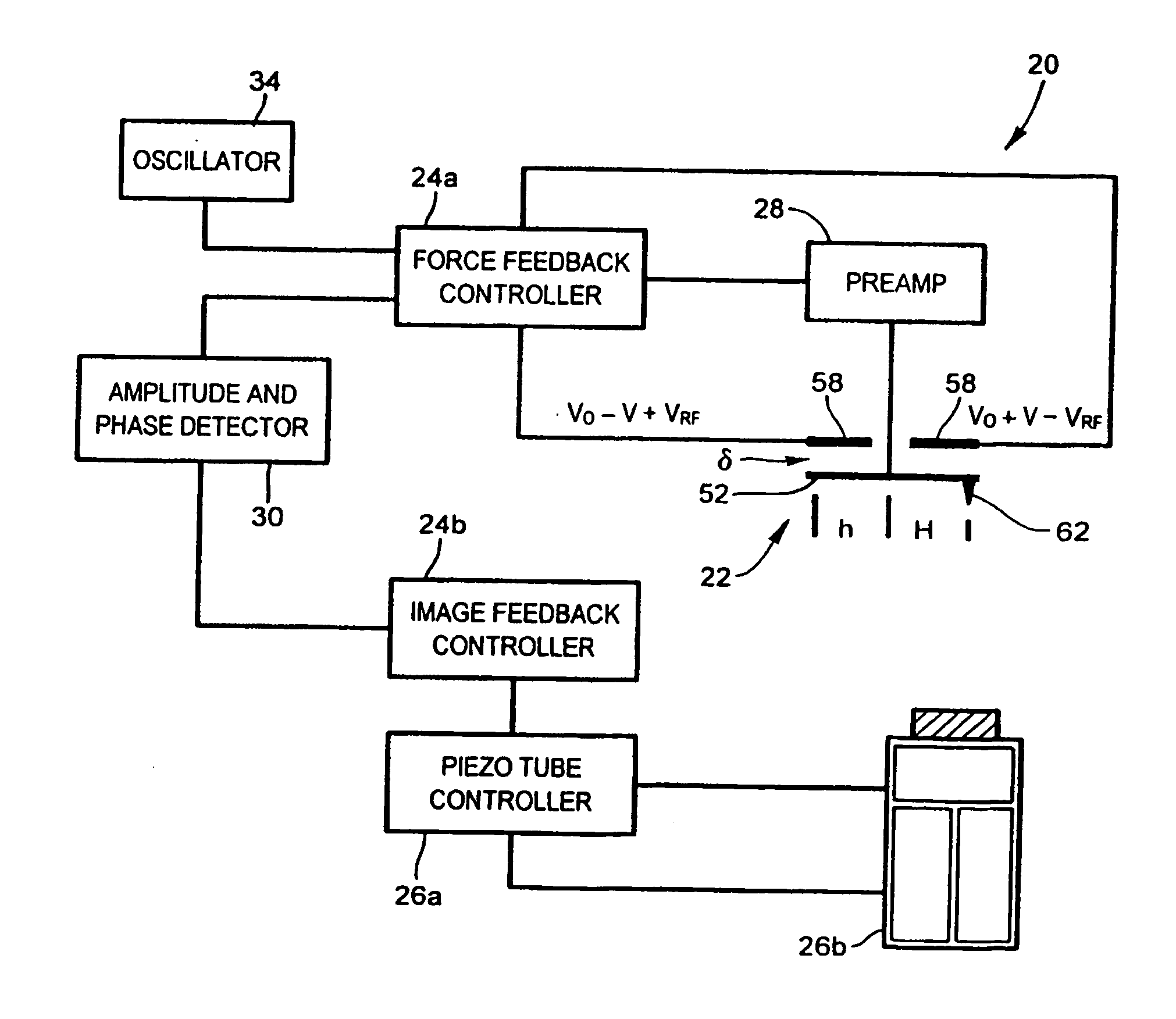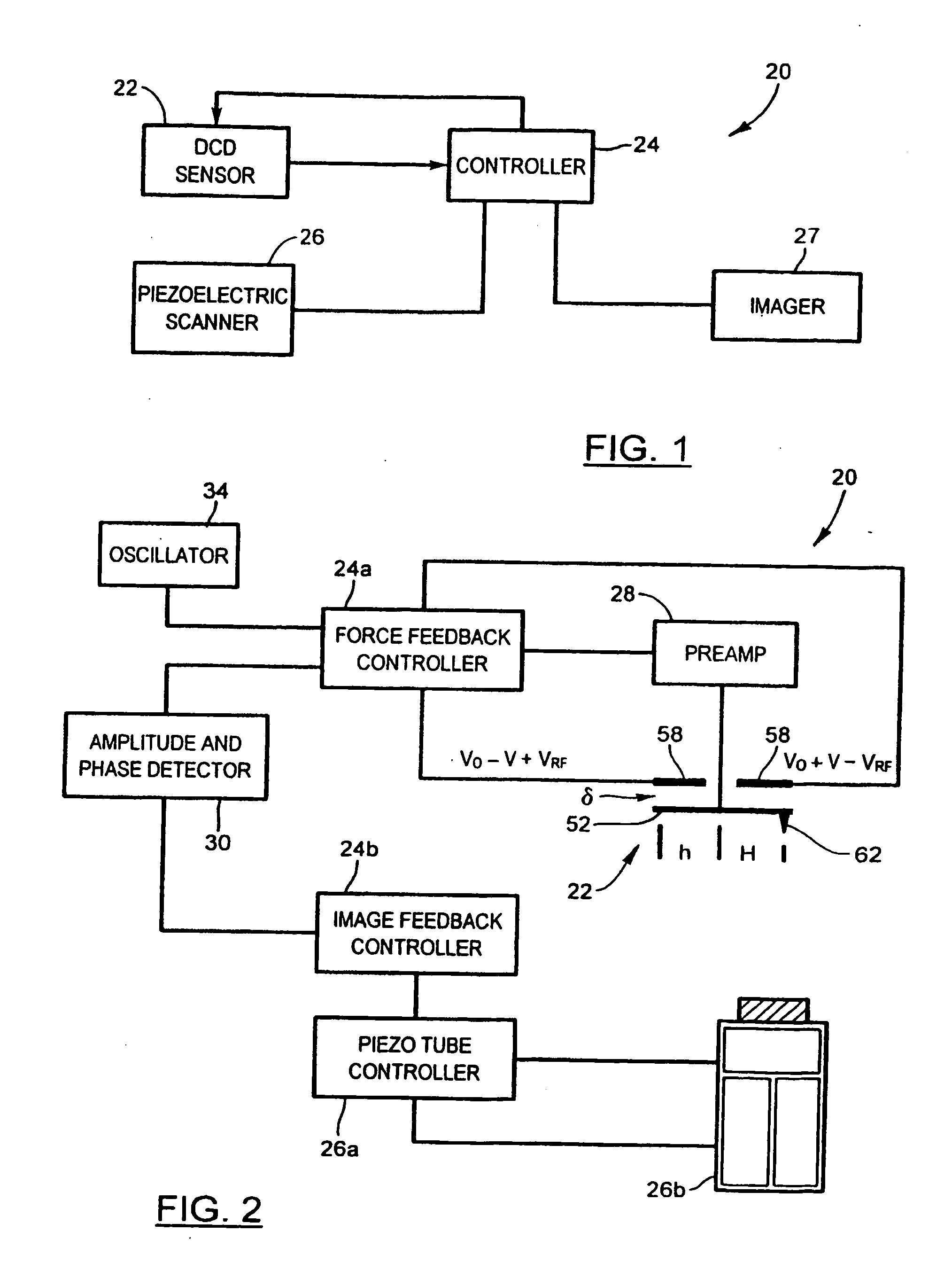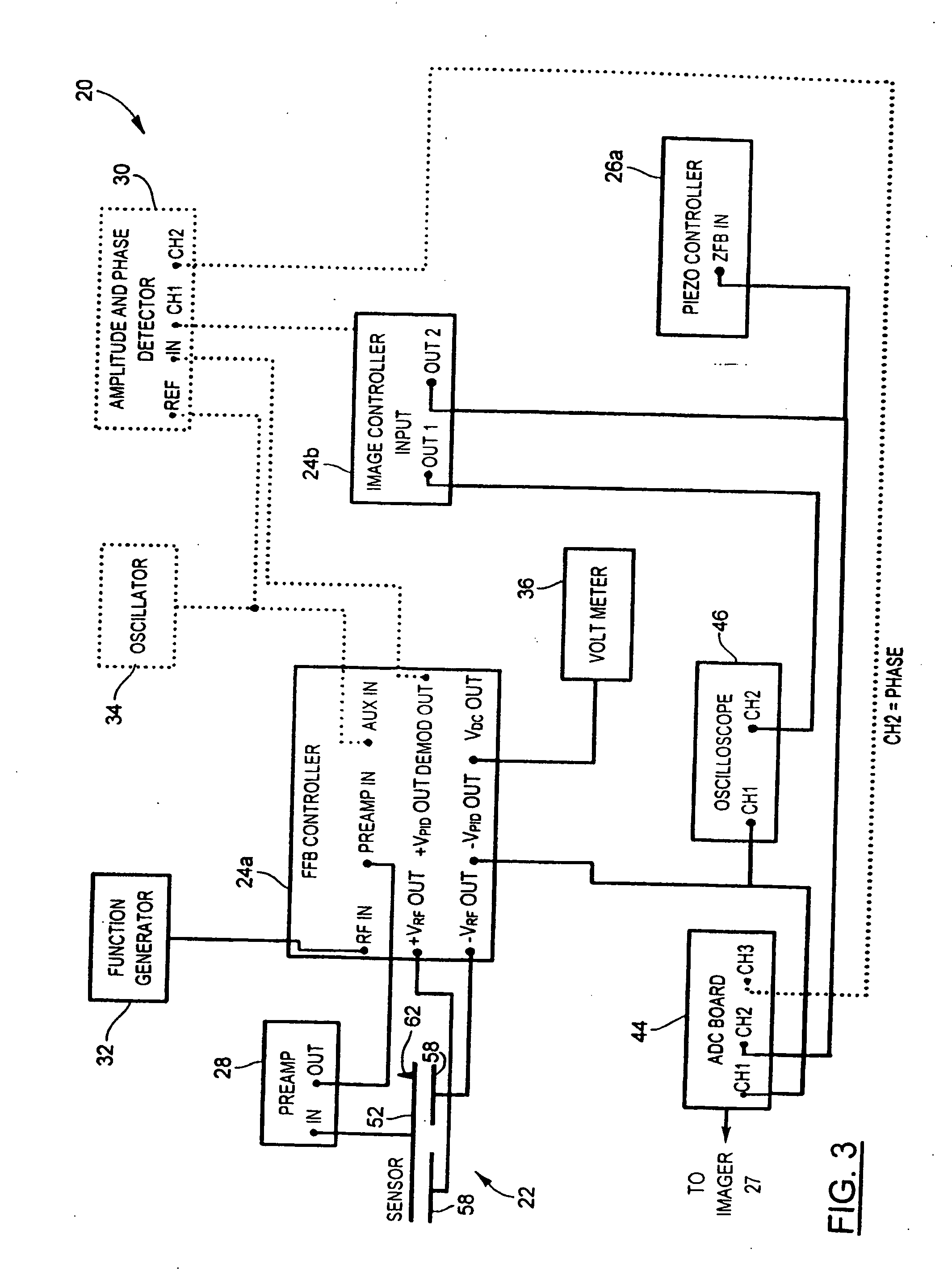Feedback influenced increased-quality-factor scanning probe microscope
a scanning probe microscope and feedback influence technology, applied in the field of imaging, can solve the problems of affecting the rate at which force signals drift, affecting the accuracy of scanning probes, etc., and achieve the effect of reducing the shear force applied
- Summary
- Abstract
- Description
- Claims
- Application Information
AI Technical Summary
Benefits of technology
Problems solved by technology
Method used
Image
Examples
Embodiment Construction
[0035] Referring now to FIG. 1, an interfacial force microscope (IFM) under force-feedback control and configured to operate in an intermittent contact mode to generate microscopic images of a sample under observation in accordance with the present invention is shown and is generally indicated to by reference numeral 20. As can be seen, the IFM 20 includes a differential-capacitance displacement (DCD) sensor 22 to contact intermittently the sample to be imaged. A controller 24 is coupled to the DCD sensor 22 as well as to a piezoelectric scanner 26 positioned adjacent the DCD sensor 22 and supporting the sample. The piezoelectric scanner 26 is responsive to the controller 24 to move the sample in a vertical direction to alter the sensor-sample separation. The piezoelectric scanner 26 is also actuable to move the sample laterally in an x-y plane to raster the DCD sensor 22 over the sample at a rate equal to about 2 to 3 μm / s. An imager 27 such as a NanoScope IIIa MultiMode manufactur...
PUM
 Login to View More
Login to View More Abstract
Description
Claims
Application Information
 Login to View More
Login to View More - R&D
- Intellectual Property
- Life Sciences
- Materials
- Tech Scout
- Unparalleled Data Quality
- Higher Quality Content
- 60% Fewer Hallucinations
Browse by: Latest US Patents, China's latest patents, Technical Efficacy Thesaurus, Application Domain, Technology Topic, Popular Technical Reports.
© 2025 PatSnap. All rights reserved.Legal|Privacy policy|Modern Slavery Act Transparency Statement|Sitemap|About US| Contact US: help@patsnap.com



